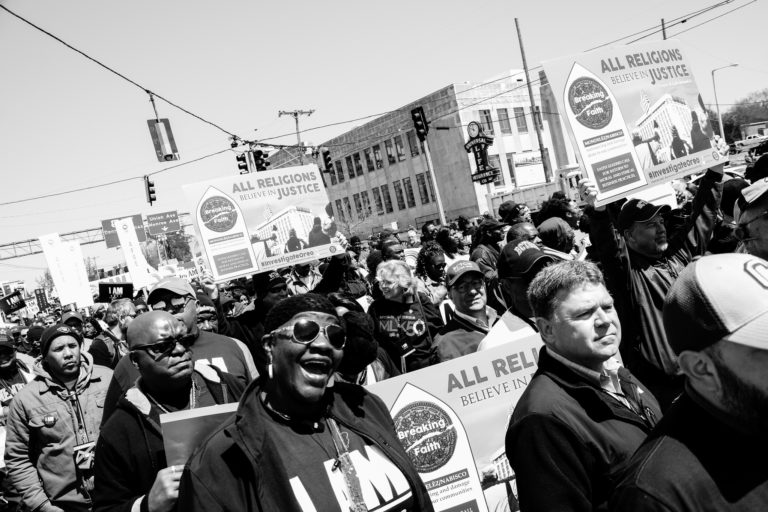

Fifty years ago, Bonnie Blair worked as a secretary at the Retail Clerks International Union in Memphis, Tennessee, which is now UFCW Local 1529. Her job ranged from typing bylaws to billing and bookkeeping for the local.
On February 1, 1968, two Memphis garbage collectors, Echol Cole and Robert Walker, were crushed to death by a malfunctioning garbage truck. This tragedy was a tipping point for sanitation workers in Memphis, where black garbage haulers were prohibited from riding with the white drivers—forcing them to ride in back with the trash. Henry Loeb, who was mayor of Memphis at the time, refused to pay the workers a fair wage.
A few days after the tragedy, the sanitation workers, including garbage-collector-turned-union-organizer T. O. Jones, demanded the right to join a AFSCME Local 1733 for better wages and working conditions. Jones and the workers asked if someone from the Retail Clerks International Union could help type letters to Mayor Loeb from 33 men, asking him to meet with the workers and recognize their union. Blair agreed to help the workers.
Blair worked with T. O. Jones and typed each of the 33 letters on an IBM electric typewriter, and made carbon copies of each letter. When every man had signed their names, Jones delivered the letters to Mayor Loeb’s office. The mayor’s refusal to meet with the workers sparked the famous “I Am a Man” strike.
Blair continued to type the correspondence for the workers during the strike. Once night, she drove to a union hall, where hundreds of the sanitation workers were meeting, to deliver the material she had typed to Jones. When she got there, Jones asked her to speak to the crowd.
“I had never made a speech before,” Blair said. “But I knew I had to say something.”
She went to the stage and addressed the workers. “Don’t give up,” she said. “Don’t be discouraged. You have every right to be here and have a contract. God is on your side.”
Dr. Martin Luther King Jr. came to Memphis on March 18 in support of the strike, which had attracted thousands of supporters. Blair and her husband joined the rally. Dr. King returned to Memphis to help the workers on April 3, and gave his famous “I’ve Been to the Mountaintop” speech. He was killed the next day. The Sanitation Workers Strike ended on April 16 with a first union contract for the workers that included wage increases.
Blair has remained activist for social and economic justice, and attended the I AM 2018 Conference in Memphis this month, which marked the 50th anniversary of the Sanitation Workers Strike and Dr. King’s death. She has advice for young activists who continue to fight for positive change 50 years later.
“Serve God where you are and do the right thing,” she said.
